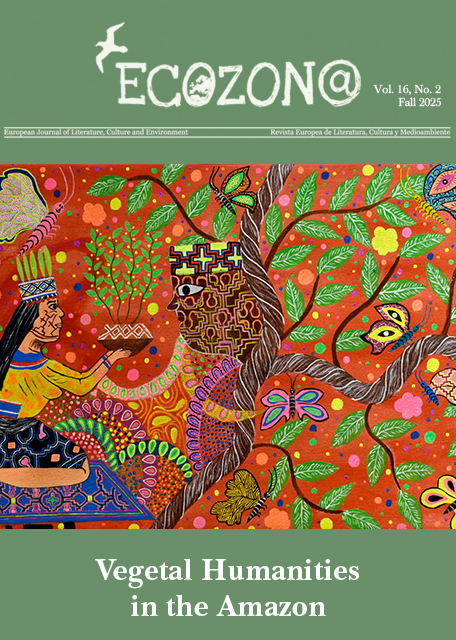<b>Presencia del Mediterráneo y Capri en la escritura de Neruda</b> // The Presence of the Mediterranean and Capri in Neruda's Writing
DOI:
https://doi.org/10.37536/ECOZONA.2013.4.2.529Parole chiave:
Neruda, Capri, escritura mediterránea, agenciamientos, territorio, Mediterranean writing, assemblages, territoryAbstract
En este artículo se analiza la presencia material del Mediterráneo y la Isla de Capri en un conjunto acotado de poemas y memorias del poeta chileno Pablo Neruda (1904-1973), a través de las nociones de territorio y agenciamiento, desarrolladas por Deleuze y Guattari en Mil mesetas. En el imaginario nerudiano, el Mediterráneo adquiere la categoría de espacio vital durante el periodo europeo de exilio político del poeta (1950-1952). La escritura exiliar de Neruda es una “escritura en movimiento” que a su paso agencia con los territorios y naturalezas mediterráneas. Nos interesa la escritura mediterránea producida en relación con la estadía de Pablo Neruda y Matilde Urrutia en Capri, en 1952, específicamente, los poemarios Los versos del Capitán (1952), Las uvas y el viento (1954), La barcarola (1967), y algunos fragmentos de las memorias Confieso que he vivido (1974) y Para nacer he nacido (1978).
Abstract
This article analyses the material presence of the Mediterranean and the Isle of Capri in a bounded set of poems and memoirs written by the Chilean poet Pablo Neruda (1904-1973), from the notions of territory and assemblage developed by Deleuze and Guattari in A Thousand Plateaus. In Nerudian imagery, the Mediterranean acquires the category of vital space during the poet’s period of political exile in Europe (1950-1952). Neruda’s writing during his exile is a “writing in movement” which assembles, in its path, with the Mediterranean territories and nature. We are concerned with the Mediterranean writing produced in relation to Pablo Neruda and Matilde Urrutia’s stay on Capri, in 1952, specifically the poem collections Los versos del Capitán (1952), Las uvas y el viento (1954), La barcarola (1967), and some excerpts from the memoirs Confieso que he vivido (1974) and Para nacer he nacido (1978).
Downloads
##submission.downloads##
Pubblicato
Fascicolo
Sezione
Licenza
Authors who publish with this journal agree to the following terms:
a) Authors retain copyright and grant the journal right of first publication with the work simultaneously licensed under a Creative Commons Attribution License that allows others to share the work with an acknowledgement of the work's authorship and initial publication in this journal (CC BY-NC for articles and CC BY-NC-ND for creative work, unless author requests otherwise.
b) Authors are able to enter into separate, additional contractual arrangements for the non-exclusive distribution of the journal's published version of the work (e.g., post it to an institutional repository or publish it in a book), with an acknowledgement of its initial publication in this journal.
c) Authors are permitted and encouraged to post their work online (e.g., in institutional repositories or on their website) prior to and during the submission process, as it can lead to productive exchanges, as well as earlier and greater citation of published work (See The Effect of Open Access).










